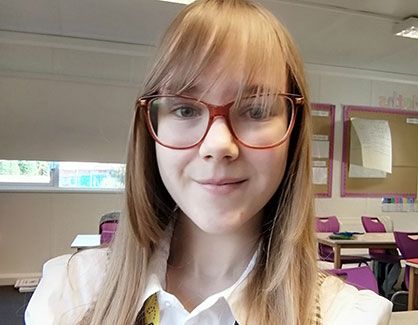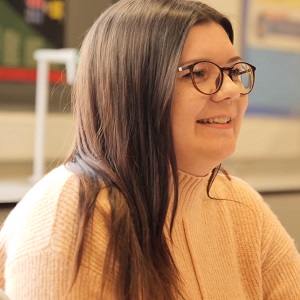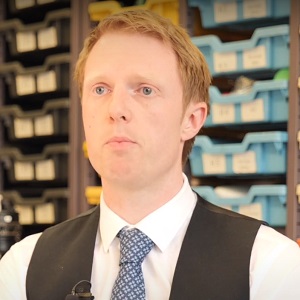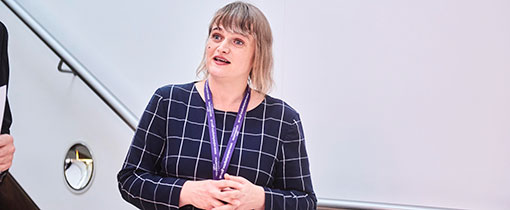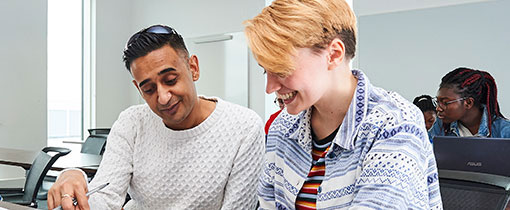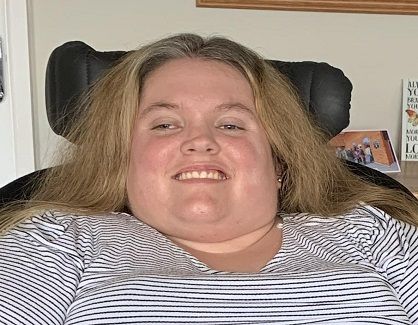
Teaching is one of the most rewarding careers available. You’ll get the chance to educate future generations, inspire knowledge and shape lives. Or, you may have the satisfaction of upskilling older learners, allowing them to improve their lives and achieve their ambitions.
If you’re looking to help people find their potential and flourish, there is a wide array of potential paths and career development opportunities. So, it’s no surprise that many people feel inspired by the prospect of teaching.
So, how do you become a teacher?
In the UK, you need to gain Qualified Teacher Status (QTS) in order to teach in schools. This can be obtained by studying a relevant undergraduate course that offers QTS. If you already have an undergraduate qualification, you can do a PGCE (Postgraduate Certificate in Education) or PGDE (Postgraduate Diploma in Education).
In this guide, we’ll talk you through everything you need to know about becoming a teacher. From the qualifications you’ll need, funding advice, skill requirements, and everything in between.
The education sector at a glance
While the nursery and primary school population in the UK has risen since 2009 and reached 4.64 million in 2018, the increase rate began decreasing until the year ending March 2020 when there was an increase in immigration and net migration.
There is a real opportunity for new teachers in the sector, as while the number of pupils in secondary schools was the same in 2019 as in 2007, the number of teachers dropped by 7%. Teacher training applications dipped by 5%, which coincided with training targets in maths and science frequently being missed.
Teacher labour-force problems are especially part of subjects such maths, sciences and languages, as schools often struggle to find teachers with degrees relevant to the subjects they teach. As few as half of teachers hold a relevant degree in maths or physics, which coincides with them having the greatest recruitment and retention challenges.
In September 2022, the government announced higher salaries of £30,000 for new teachers, alongside retention incentives of £2,000 per year for teachers in subjects with shortages, and an additional £1,000 each in “challenging areas”.
Deciding which age group you want to teach
The first thing you’ll need to do is decide which age group you want to teach. Your main options include primary and secondary school education, which is split into four key stages:
- Early years foundation stage (nursery and reception): 0-4 year olds
- Key stage 1: 4-7 year olds - primary school years 1-2
- Key stage 2: 7-11 year olds - primary school years 3-6
- Key stage 3: 11-14 year olds - secondary school years 7-9
- Key stage 4: 14-16 year olds - secondary school years 10-11
Getting experience with a few different age groups will help you figure out which one is most suited to you.
Technically, you are able to teach any age range with Qualified Teacher Status (QTS), but it’s helpful to decide which age range you’d prefer to teach early on. This way, you’ll be able to focus your experience and qualifications on your chosen age group.
Types of careers in Education
There are many different careers involved in the Education industry, so the roles listed are not extensive.
An early years teacher may work in private, voluntary, or independent settings, which may include day nurseries, preschools, playgroups, or the reception/early years foundation stage (EYFS) of an academy, independent school or free school.
Primary education involves teaching a range of key stage 1 (KS1) and key stage 2 (KS2) national curriculum subjects to 4-11 year olds, applying diverse teaching approaches across these disciplines.
KS1 and KS2 national curriculum subjects include:
- Art and design
- Computing
- Design and technology
- English
- Geography
- History
- Languages (at KS2)
- Maths
- Music
- Physical education
- Science
- Welsh (in Wales)
A primary school teacher will plan lessons, prepare teaching materials, teach lessons, mark work, assess children’s behaviour, talk to parents and guardians about their children’s progress, and more. A primary school teacher will typically be with the same class all day.
To become a primary school teacher, you’ll need a minimum of Grade 4/C in GCSE English, Maths and Science.
A secondary school teacher will have similar responsibilities to a primary school teacher, but will teach pupils aged between 11 and 16 years old. In secondary education, you’ll teach one or more national curriculum or vocational subject at GCSE and/or A-level. For example, you might become a secondary school teacher in English or Maths.
The subject you teach will most likely reflect what you studied at A-level or completed as an undergraduate.
There is a much stronger focus on exam-based learning in secondary education, since students need to complete GCSE or A-level examinations in order to meet the requirements of the course.
A post-compulsory education (PCE) teacher may work in a range of different settings, including colleges, community education centres, universities, prisons, and more. Responsibilities are also similar to other kinds of teachers, but you will teach a number of subjects in one of three main areas: vocational training, academic teaching, or English and Maths.
A BSL teacher teaches sign language to children, teens, and adults, and will also teach other subjects using sign language. Like other teachers, BSL teachers will plan and prepare lessons, set project work, mark essays and exams, check and report on students’ progress, and more. This is a rewarding career path for anybody studying a British Sign Language (interpreting) degree.
The government’s release of its 300-page White Paper on “Levelling Up” revealed plans to spread opportunities in a fairer manner across the UK, including in the education sector.
The paper outlines the government’s ambition to create 55 new “education investment areas” (EIAs), offering retention payments to help schools recruit and retain teachers. If successful, this may mean better financial incentives and potentially more positions available for qualified teaching staff. It also related plans for upskilling adults and school leavers, especially in technology and digital skills.
The UK labour market currently has a high number of vacancies and job postings, but employers are reporting that they are struggling to fill such positions. Moving forwards, employers are likely to need to work harder to fill vacancies, which may include raising salaries, clearer career progressions, and seeking out potential employees in other areas. This creates a real opportunity for people aiming to enter or progress in teaching.
In 13-19 September 2022, there were 5,836 active job adverts posted for Wolverhampton making for a 12% increase on the last year, and 4,991 in Telford and Wrekin marking a 3.4% increase.
Wolverhampton alone has over 100 schools, all requiring teachers and other educational support staff including teaching assistants, special educational needs supporters, and subject specialists.
There are opportunities at primary (infant/junior) and secondary schools, sixth forms and colleges, higher education centres, in state and private providers. There are also increasing opportunities in nursery education and ‘wrap-around’ care.
Types of schools
There are many types of schools in the UK. Each type differs in terms of how it is run, who staff are employed by, entry requirements, and staff contracts. The different kinds of schools in the UK include:
Maintained - A school that follows the national curriculum. Maintained schools may focus on a specific subject as long as this is within the scope of the national curriculum. Qualified teachers in UK state-maintained schools need to undertake Initial Teacher Training (ITT) or Initial Teacher Education (ITE), and completing such qualifications leads to Qualified Teacher Status (QTS) in England and Wales, and the Teaching Qualification (TQ) in Scotland.
Academy - A school that does not have to follow the national curriculum, and often focuses on a specialist subject area. For example, an academy may specialise in science or art. Academies follow the same key stage 3 and GCSE examinations as other schools.
Grammar – A school that selects students based on eligibility criteria. Grammar schools are funded by local authorities, and to get a place, students must complete an ‘11-plus’ examination.
Independent – A school that is exempt from the national curriculum. Instead, independent schools focus on children’s creative, personal and moral development. You will likely need a specialist teacher training qualification to teach at an independent school.
If you are working in any educational setting, you will likely need to pass a DBS (Disclosure and Barring Service) check, which allows employers to check your criminal record, to help decide whether you are a suitable person to work with children or vulnerable adults. There are several levels of DBS check, which may give details of any convictions, cautions, reprimands and final warnings held by the police about you.
Studying teaching at university
There are several university routes into teaching. The type of course you choose will depend on your current qualifications and experience, and the type of teaching career you want to pursue.
Generally speaking, universities offer teacher training degrees at both undergraduate and postgraduate level.
Undergraduate teacher training courses
If you don’t have a degree, then one of the best ways to get into teaching is to study an undergraduate teacher training degree. This usually involves a focus on a particular subject, making it an ideal option for those looking to become secondary school teachers. For example, teacher training subject areas can include:
- BA (Hons) History with Secondary Education (QTS)
- BSc (Hons) Biology with Secondary Education (QTS)
- BSc (Hons) Computer Science with Secondary Education (QTS)
- BSc (Hons) Mathematics with Secondary Education (QTS)
- BSc (Hons) Biology with Secondary Education (QTS)
- BSc (Hons) Computer Science with Secondary Education (QTS)
We also offer a BA (Hons) Primary Education course, providing training to students who want to teach at key stage 1 and 2 level.
PGCE (Postgraduate Certificate in Education) courses
For those who have completed an undergraduate degree, a PGCE (Postgraduate Certificate in Education) is the most popular path to teaching. This postgraduate course takes one year to complete when studied full- time, or two years when studied part- time.
By studying a PGCE, you’ll gain practical teaching experience in schools, and develop your theoretical knowledge of educational approaches. Experience in a school will be a key part of your course, and there will be a set number of hours you will be required to complete. For most undergraduate degrees and PGCE courses, this includes a minimum of 120 days on placement in schools a year.
As a highly experience-based course, you’ll have ongoing contact with your HEI (Higher Education Institution) tutor, who can support and advise you throughout your placements and studies. They will also act as your ‘line manager’ during school placements and advise on any challenges that you are facing.
A PGCE is one of the best ways to train as a teacher, since it provides a combination of practical and theoretical aspects. You can choose to study a primary or secondary education -based PGCE. Take a look at our PGCE courses for more information:
- PGCE Primary Education
- PGCE Secondary Education: Mathematics
- PGCE Secondary Education: English
- PGCE Secondary Education: Social Sciences
- PGCE Secondary Education: Biology
- PGCE Secondary Education: Physics
Fees and funding
You’ll have a variety of funding options available to you as a trainee teacher. These most popular options include student loans and teacher training bursaries
Student loans - Government-funded loans are the most common type of funding for teacher training. This includes a tuition fee loan of up to £9,250, which helps cover the university course fees. It also includes a maintenance loan of up to £12,667, which helps cover your living costs while studying.
Teacher training bursaries - Depending on the course you study, you may be eligible for a teacher training bursary or scholarship. Bursaries range from £10,000 to £24,000, however these are limited to a selection of subjects, which are listed in the table below.
|
Subject |
Bursary |
Scholarship |
|
Biology |
£10,000 |
|
|
Chemistry |
£24,000 |
£26,000 |
|
Computing |
£24,000 |
£26,000 |
|
Design and technology |
£15,000 |
|
|
Geography |
£15,000 |
|
|
Languages (including ancient languages) |
£15,000 |
|
|
Maths |
£24,000 |
£26,000 |
|
Physics |
£24,000 |
£26,000 |
Source: Postgraduate bursaries and scholarships - Get into Teaching
You will need to have either a Bachelor’s (honours, class 2:2 or higher), Master’s, or PhD qualification in order to be eligible for a bursary or scholarship.
Useful skills in teaching
Teaching is a multifaceted profession. You’ll manage a lot of different areas day-to-day, from supporting young people’s learning and organising lessons, to developing your subject knowledge.
Here are some of the most valuable skills you’ll need as a teacher:
Subject expertise - Students will learn best when you are confident in your knowledge and demonstrate your expertise. This is particularly important at secondary level, where you’ll teach in a specialist subject.
Strong organisation - Teachers juggle a lot of responsibilities. Being well organised will help you manage your time, workload, and lessons.
Empathy - You’ll teach a variety of students who all learn differently. Being empathetic will help you approach students in the right way and support them in the best way possible. This will also help students feel comfortable coming to you for advice or guidance.
Confidence - Without confidence, a class can quickly get out of control. Showing confidence will help ease students and command their attention, helping everyone in the room benefit from more engaging lessons.
Communication - Not only do teachers have to know their subject inside out, they have to communicate it effectively. Teachers need to be able to deliver classes in a clear, engaging and understandable way - particularly for younger children.
Patience - No matter what age group you teach, you’ll need a lot of patience. It’s important to give students the time they need to understand things and deliver information at a suitable pace.
Case Studies
/prod01/wlvacuk/courses/media/images/2019-re-design/large-cta-image/students_working_in_library.jpg)
Start your teaching career today
The School of Education at the University of Wolverhampton offers a comprehensive range of undergraduate and postgraduate courses for future and current professionals, including teaching qualifications, continuing professional development, and research degrees.
Our staff hold key expertise in and contribute to the development of policy, debate, and continuing professional development in areas including:
- Early childhood
- Curriculum development
- Mentoring
- Special Educational Needs, Disability and Inclusion Studies (SENDIS)
- Leadership and management in schools
Our Courses
Our links with industry
We are partnered with over 450 schools, colleges, private providers and educations settings, giving our students an enormous range of opportunities to gain work experience and professional contacts in the sector.
Our School of Education, based at Walsall Campus, has been awarded partner provider status for our National Award for Special Educational Needs Co-ordinators (NASENCo) by Leading Learning for SEND Community Interest Company (LLSENDCiC).
It has been awarded a sector endorsement for the foundation degree in Early Years Services by SEFDEY: the Sector-Endorsed Foundation Degrees in Early Years Professional Association.
Our researchers collaborate with many partners contributing to countless projects, such as a recent NCFE webinar, or digital learning for disadvantaged communities policy, all of which feeds back into our teaching.
FAQ's
Frequently Asked Questions
If you are considering becoming a teacher, volunteering at a school is a good way to discover whether it is likely to be a career that would suit you. To train as a teacher, you will need to have a certain set of grades and qualifications, and will need to undertake Initial Teacher Training (ITT) or Initial Teacher Education to teach mainstream education in the UK. Once you have passed, you will then be required to complete a two-year induction period to become a fully qualified teacher.
Qualified teachers in UK state-maintained schools need to undertake Initial Teacher Training (ITT) or Initial Teacher Education (ITE), and completing such qualifications leads to Qualified Teacher Status (QTS) in England and Wales, and the Teaching Qualification (TQ) in Scotland.
Most teaching degrees require applicants to have a grade 4 (previously grade C) in GCSE English, Mathematics and Science.
If you are working in any educational setting, you will likely need to pass a DBS (Disclosure and Barring Service) check, which allows employers check your criminal record, to help decide whether you are a suitable person to work with children or vulnerable adults. There are several levels of DBS check, which may give details of any convictions, cautions, reprimands and final warnings held by the police about you.
Teacher is an exciting, rewarding career that helps shape the lives of the world’s future parents, leaders, scientists, writers… in fact, every career and role that there is. It’s never dull – each day will bring different challenges and opportunities, and see you guiding and interacting with children and young people from different backgrounds and experiences, each with their own unique needs, strengths, and challenges. Quite simply, there is no other job available that combines the same variety, opportunity, stability, and rewards of teaching.
Studying and qualifying to become a teacher will involve extensive experience of teaching in schools, meaning that it is an essential part of the process of becoming a teacher.
If you are studying to become a teacher, experience in a school will be a key part of your course, and there will be a set number of hours you will be required to complete. For most undergraduate degrees and PGCE courses, this includes a minimum of 120 days on placement in schools a year.
If you study at the University of Wolverhampton, you will be part of a learning institution with partnerships across over 450 institutions of learning, giving you a huge choice of places to gain experience and the links you’ll need to access them.


/prod01/wlvacuk/media/departments/digital-content-and-communications/images-2024/240328-Varsity-Line-Up-Resized.jpg)
/prod01/wlvacuk/media/departments/digital-content-and-communications/images-18-19/220325-Engineers_teach_thumbail.jpg)
/prod01/wlvacuk/media/departments/digital-content-and-communications/images-2024/240515-Spencer-Jones-Award-Resized.jpg)
/prod01/wlvacuk/media/departments/digital-content-and-communications/images-2024/240320-Uzbekistan-Resized.jpg)
/prod01/wlvacuk/media/departments/digital-content-and-communications/images-2024/240229-The-Link-Resized.jpg)
/prod01/wlvacuk/media/departments/digital-content-and-communications/images-2024/240516-Andy-Gibson-Resized.jpg)
/prod01/wlvacuk/courses/media/images/2019-re-design/video-banner/student-in-lesson.jpg)
